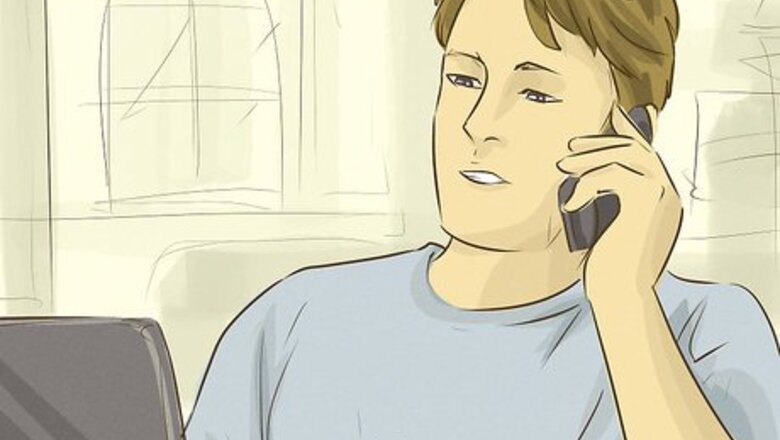
views
X
Research source
Advancing to the Interview Stage
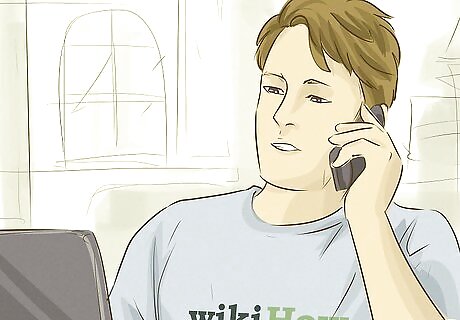
Receive an email or phone call. Some agencies send out interview notices through email, while others will have someone call you to schedule the interview. Depending on the size of the agency or the level of the job, you may have multiple interviews. If you received an email, it should have basic information about the job and tell you when the interview is scheduled, or how to schedule an interview. There also may be a number you can call if you have any questions. You may want to print out a copy of the email so you have it for reference later. If you receive a phone call, have a pen and paper at hand to take notes.
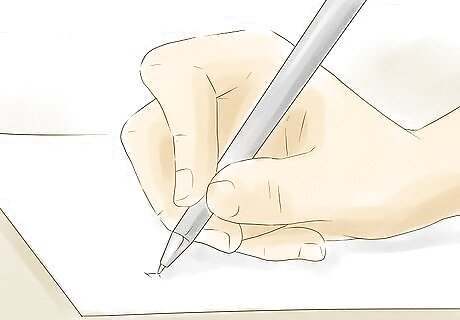
Get specifics about the caller and the job. When someone calls you to schedule an interview with a federal agency, get their name and job title. You also want to write down a return phone number, if it differs from the number on your phone's caller ID. Write this information down along with the date and time of the phone call. Confirm the job the interview is for, and write down any information or job ID numbers available. This is especially important if you applied for more than one government job.
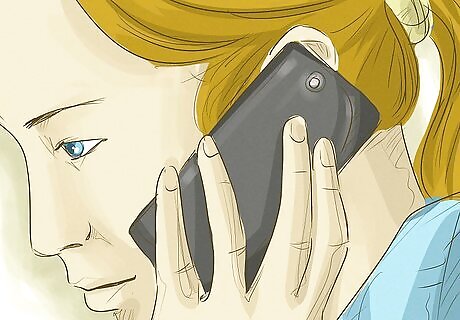
Ask the date, time, and location of the interview. There may be several government agencies in more than one building, so find out as many details about the location as you can. If possible, get directions to the office – especially in a large building. If you're driving to the interview, be sure to ask about parking. Find out if you can use a government lot or if you'll have to park on the street or in a pay lot.
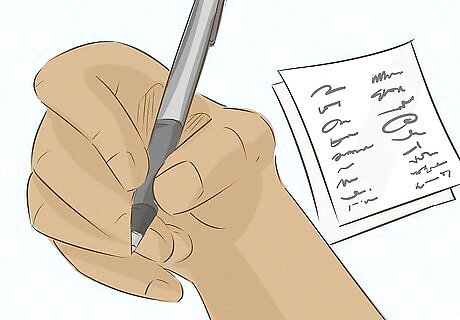
Write down anything you need to bring with you. When you go to your interview, you'll need a government-issued ID and copies of your resumé. If there are any other documents you'll need, make a list so you can gather them in advance. You might want to invest in a "padfolio" that has a legal pad and a folder for holding documents. This way you can keep everything you need together and have space to take notes during the interview if necessary.
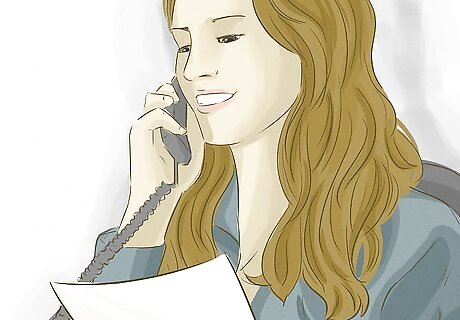
Get as much information about the interview as possible. It may be that the person who calls you to let you know you have an interview doesn't know very much about the process. Typically they can give you at least basic information, though. Find out if your interview will be one-on-one or with a panel of people. Panel interviews can be more difficult to prepare for, and you may be more nervous or intimidated. Try to get the name of your interviewer. You may be able to find out information about them through an online search.
Practicing for Your Interview
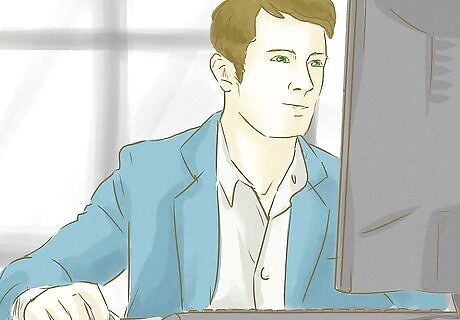
Learn all you can about the agency and your interviewer. Start by going to the agency's website and reading all you can about the agency's mission and the work it does on a daily basis. If you have the name of your interviewer, look them up on the agency's website. Focus on specifics that relate to your skills and interests. You'll probably be asked why you're interested in working for that agency, so you should be able to identify specific reasons you're attracted to that agency and their work.

Talk to anyone you know at the agency. If you happen to know anyone who is a current or former employee, pick their brain for information about working at the agency and what they're looking for in a new hire. If you're not sure whether you know anybody who works there or not, ask around or post on social media asking if anyone has worked there before or knows anybody who has. You can ask about the person interviewing you as well, especially if you're talking to a current employee. They may be able to give you some insight into your interviewer's background and personality.
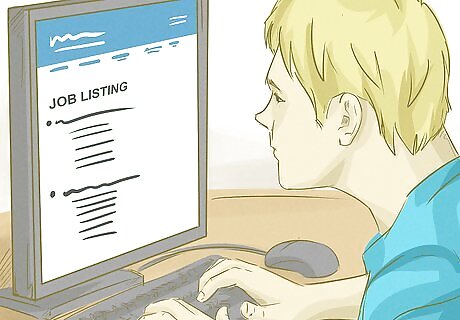
Pull the official job description. You probably will be asked some behavior-based questions designed to evaluate your ability to perform the specific job. Prepare for these questions by comparing the job duties to your own skills. Break the job description down into "core competencies," which involve using multiple skills together, such as when managing a team or problem solving. Make notes regarding your specific skills and experiences that relate to each aspect of the job. Try to come up with an example where you used those skills particularly effectively. For example, if the job requires you to manage and coordinate a team of 4 to 6 researchers, you might talk about the research project you coordinated for a class project that won a student research award.
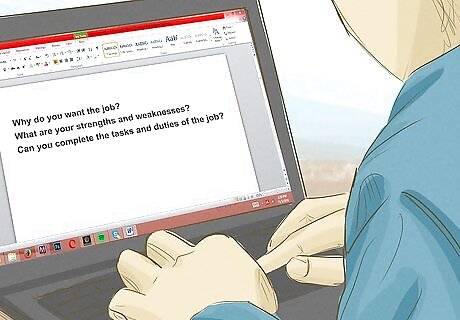
Prepare answers for basic interview questions. Every federal interviewer is likely to ask you the same basic questions to start. Preparing answers to those questions can help you stay more relaxed and focused during the interview. For example, you might be asked why you want to work for the federal government. Craft an answer focused on your respect for public service and the work done by government employees to make people's lives better. You'll also be asked why you want to work for that particular department, and perhaps even what attracted you to that particular job. Prepare an answer that focuses on the work the department does, with specific programs that hold your interest. When asked about your most recent job or employer, stay positive. If you were fired from your previous job, present the situation as objectively as possible. For example, you might say, "The company was restructuring and my manager felt I was no longer a good fit."
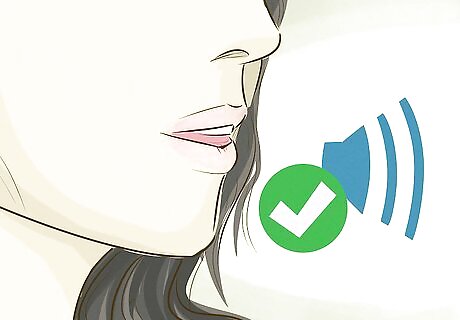
Craft a sales pitch. Ultimately, any job interview is about selling yourself as a perfect fit for the job offered. If you write and memorize a 30-second speech, also called an "elevator pitch," this will give some focus to your interview answers. You won't have time to tell the interviewer everything about you. Isolate two or three qualities about yourself that you think make you an ideal candidate for the job. Use your elevator pitch as your answer when the interviewer asks you to tell them a little about yourself. Use your 30-second speech as a theme. For every question, take a moment to think how that question relates to the information in your speech, and organize your answer along those points.
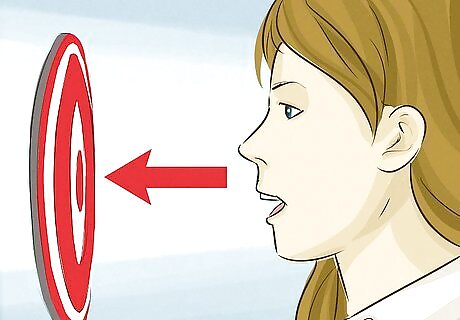
Keep your answers focused on the job. When an interviewer asks you about yourself, they're not asking for an autobiography – they're asking why you think you would be good at this job. Even for questions that seem personal, you need to talk about the job. For example, the interviewer might ask you about your strengths and weaknesses. Pick something that's related to the job duties of the position for which you're interviewing. For example, if one of the job duties is conducting inspections, you might bring up your attention to detail as a strength.

Have a friend or family member interview you. The best way to prepare for a government interview is to practice. If you have someone who is willing to practice with you, give them a list of questions to ask. Sometimes it can be best to simulate the interview conditions as much as possible. While you may be fine answering questions curled up on the couch in your pajamas, you may get nervous when sitting at a table in professional attire. Get feedback after your mock interview on where you were best and where you could use improvement. If you've simulated the interview conditions, you might also get feedback on any body language or tics that are likely to give the interviewer a negative impression. If you can't get anybody to interview you in person, filming your answers on a webcam or even practicing in front of a mirror is better than nothing.
Having a Successful Interview
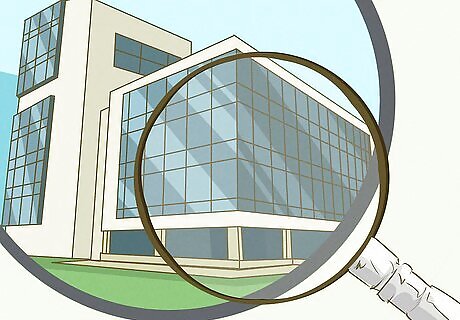
Do a dry run to the interview location. It's likely you'll never have been in the building where your interview is being held. If possible, travel there before the date of the interview so you have a good idea how long it will take you to get there. If you'll be driving, figure out where you need to park and if you'll have to pay for parking. If you're taking public transportation, identify the nearest stop and find out which bus or train you need to catch. If a dry run isn't possible, figure out your commute the best you can using internet maps or a public transportation map and schedule. Give yourself more time than you think you'll need so you won't be late.

Dress professionally. Regardless of the department or type of job, you want to dress in conservative, professional attire for your interview. Dark colors such as black or navy blue typically are preferable. Make sure your clothes are clean and pressed. Wear conservative, closed-toe dress shoes that are clean and in good repair.
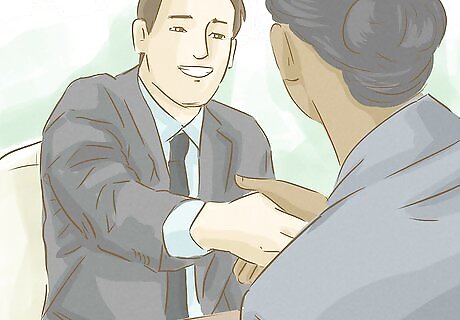
Treat everyone with politeness and respect. From the moment you walk into a government building, assume you are being watched and evaluated. If you are rude to a receptionist, word may get back to your interviewer. If you talk to anyone, ask their name, and try to use it in conversation with them. Tell them your name and the reason you're there.
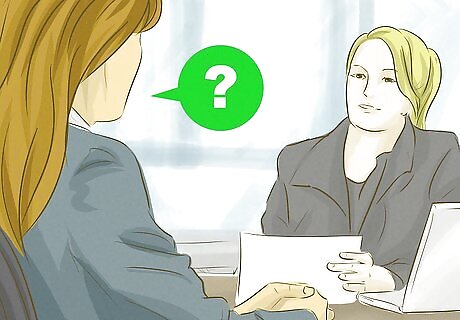
Answer questions thoroughly. In some situations, follow-up questions aren't allowed for government interviews. If you don't mention skills or experiences that relate to the question asked, you might not have the opportunity to mention them again. While your answers should be thorough, you also don't want them to be too long. Answer the question directly and then provide a brief example that illustrates your experience or skills in that area.
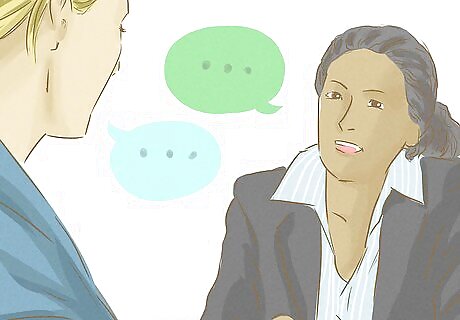
Stay focused on the job. The interviewer may ask you questions that seem like more personal questions, but your answer should relate that question back to the job. Avoid jokes or personal stories that bear no relation to the job or the agency's work in general. Some interviews may be more formal. However, other interviewers may be close to your age and take a more collegial approach. With these interviewers, it's easy to slip into more casual conversation. While this may leave you feeling good about the experience, you're trying to get a job, not make a new friend.

Avoid questions about salary and benefits. Typically the interviewer will ask you towards the end of the interview if you have any questions. Unless the interviewer has mentioned salary and benefits, save those questions for someone in human resources. If anything was said that you want to clarify, now is the time. This also applies to anything you've forgotten to mention, if you think it would improve your chances of getting hired. If you don't have any questions about anything said during the interview, ask when you can expect to hear from them again and what the next step in the process is.
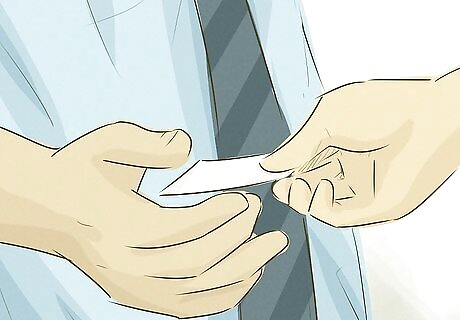
Follow up with a thank you note. Regardless of how you think the interview went, hand-write and mail a thank you note to the person who interviewed you. Keep it specific and personal, and reiterate your interest in working for the agency. For example, you might write "Thank you for the opportunity to talk with you on Thursday, September 9, about working in data analysis. I was interested in the project and look forward to hearing more. I'm more interested than ever in coming to work with you." Include as many specifics as possible, while keeping your note to two or three sentences.












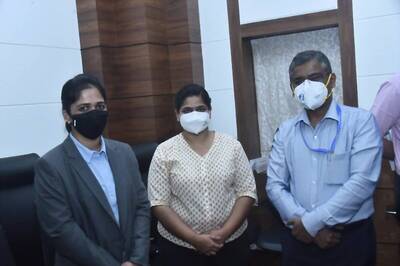

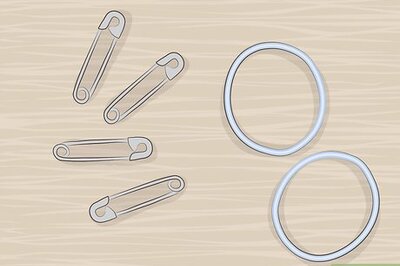




Comments
0 comment